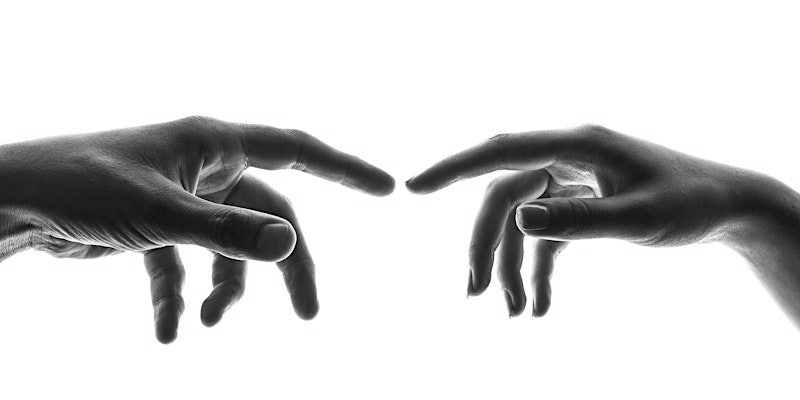Touchless Computing makes it possible for individuals to control a computer without any form of physical contact.
Watch the video
Synopsis
The COVID-19 pandemic period has renewed interest in touchless computing in healthcare. Touchless Computing makes it possible for individuals to control a computer without any form of physical contact. Previous efforts to implement touchless computing have been limited by the expense and installation of new hardware, software requirements and assembly of solutions.
The team working at UCL Computer Science and Great Ormond Street Hospital for Children's DRIVE centre, led by Sheena Visram will present a low cost and scalable method for enabling touchless computing for existing and new software, by using standard webcams.
UCL's MotionInput v2.0 is designed to work across a broad range of clinical and health-related contexts and with users of differing capabilities. Users can execute cursor commands - moving a cursor with their hands, eyes, or head direction, perform mouse clicks with hand pinching, eye blinking and mouth opening gestures.
About the speakers
Sheena Visram
Sheena is Clinical Supervisor for UCL MotionInput, leading on healthcare applications of Touchless Computing Interactions and researching the adoption of emerging technologies at Great Ormond Street Hospital for Children’s DRIVE Innovation centre, University College London Interaction Centre (UCLIC) with a special interest in Human-Computer Interaction.
She is an accomplished clinical leader with experience across public and private healthcare systems approaching twenty years, consulting on venture incubators and accelerator programmes. She sits as Chair of IXN for Good, focusing on proof-of-concept prototypes to solve real world problems for NGOs and charities.
She is Editor-in-Chief of Medical Care, Associate Editor at Future Healthcare Journal, Royal College of Physicians and develops future leaders as TEDxNHS Organiser and Curator. As Special Advisor to IXN for the NHS, she supervises the next generation of Computer Scientists with industry partners, offering a clinical perspective to the design, and rapid prototyping of solutions.
Prof. Dean Mohamedally
Prof Dean Mohamedally, Director for the UCL Industry Exchange Network and technical supervisor for UCL's MotionInput v2.0 at UCL (University College London) Computer Science department
Dean pioneered the concept of the industry exchange network in the Department of Computer Science at University College London where it has been in operation for over eight years working with NHS trusts. He is the Chair for the Industry Exchange Network (IXN) for the NHS. The Industry Exchange Network model is reported in the Government's Topol Review.
He is Co-Chair of the National Framework for Industry Exchange Networks which has several member universities as part of the programme, recognised by UK Government's Science and Innovation Network and the Foreign and Commonwealth Office. Over 250 Computer Science students each year are paired with clinicians on this and are pushing the boundaries of technology development, integration and adoption applied to modern medicine and patient care.
The group oversees and curates student projects with technology providers and clinical groups that have open source IT systems, shareable components and open sourced algorithms.
Our events are for adults aged 16 years and over.
This event is brought to you by: Organised by BCS North London branch in association with BCS London Central branch.














